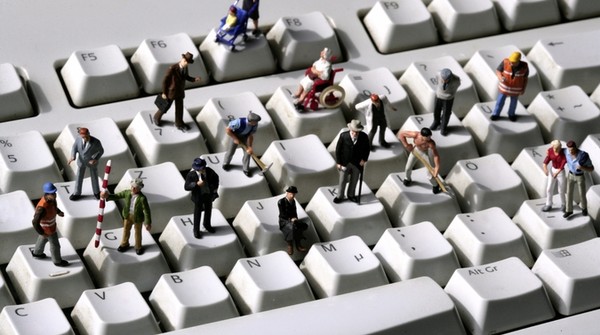Is digital or electronic voting the solution to democratic participation? Some doubts from Scotland
The Scottish Government is concluding a consultation on electronic voting systems (finishing March 29th). But as digital systems prove their unreliability and hackablility all around us, there are some questions being raised about whether digital voting causes more problems for democracy than it solves.
The Scottish investigative site The Ferret lays out a number of the obvious objections:
Matthew Rice, Scottish director of Open Rights Group, said his organisation’s own research on electronic voting – which includes observing in countries with online voting systems such as Estonia – suggested that hack-proof technology was not yet available.
He claimed that with the rise of cyber attacks across the world – often linked to countries such as Russian and China – and the alleged hacking of everything from power plants to voting systems in the US, the risks associated with electoral voting must be properly assessed.
The three critical factors for planning voting systems – security, veritability and anonymity – were challenged by electronic voting, he added.
“It’s a tough combination for any system to get right,” he said. “We have done ten years of research into electronic voting and in our view it is just not there. Because it has some fundamental aspects online there are huge security issues that pen and paper simply do not have.
“We have got to think what would happen if a foreign actor was interested in the outcome of our elections. It [electronic voting] always introduces security risks. We are saying that it should not be rolled out.”
Rice said that despite Estonia heralding the success of its electronic voting system, introduced in 2014, Open Rights Group observers who attended the general election were not convinced by the security in place.
“What we found was a critical vulnerability either by hacking their machine, in the same way that your webcam could be hacked or if there was an attack [on the server] that would mean that votes could be changed at scale,” he added.
He said the lack of paper trail and ability to recount could also be problematic while technical explanations of security systems, which were difficult to understand, could be exploited by those looking to convince others of vote rigging.
The great argument for e-democracy is participation, of course - or more precisely, the often poor levels of it (particularly at local and council level). Surely with our ever-smarter phones, a plebiscite could conceivably be as easy as tapping (with a biometric source) the relevant app? The ScotGov consultation paper lists all the relevant options.
But we are not in a good environment to trust any of these processes to be verifiable and reliable. And the stakes are high. The Scottish tech expert (and independence supporter) Gordon Guthrie made the obvious objection in his Medium column:
The ScotGov's suggestions for electronic voting themselves are deeply flawed — and it shows in the consultation — which is all about the voting side, convenience, better access, higher turnout. It doesn’t mention the most critical aspect of voting — the counting.
What makes elections and democracy so successful is not the voting but the counting, and not the winners, but the losers. Democracy only produces social peace and harmony if the losers accept they have lost.
At present, with paper ballots, the election can be, and is, validated. Polling agents can inspect the empty ballot boxes before they are sealed for voting, parties keep turnout tallies, there is a box count on collection of the ballot boxes, and only then are the ballots counted.
All this goes with electronic voting... Such a loss of transparency seems a very high price to pay for a small measure of convenience.
At the very least, we'd make the claim at A/UK that it's the culture and consciousness of democracy, the sense of community power and personal agency, that needs to be worked on. So that the citizen who ends up going to the poll - paper or digital - is a far more confident, purposeful and self-possessed entity, than someone scurrying to do their unreflective duty, after or before work.

